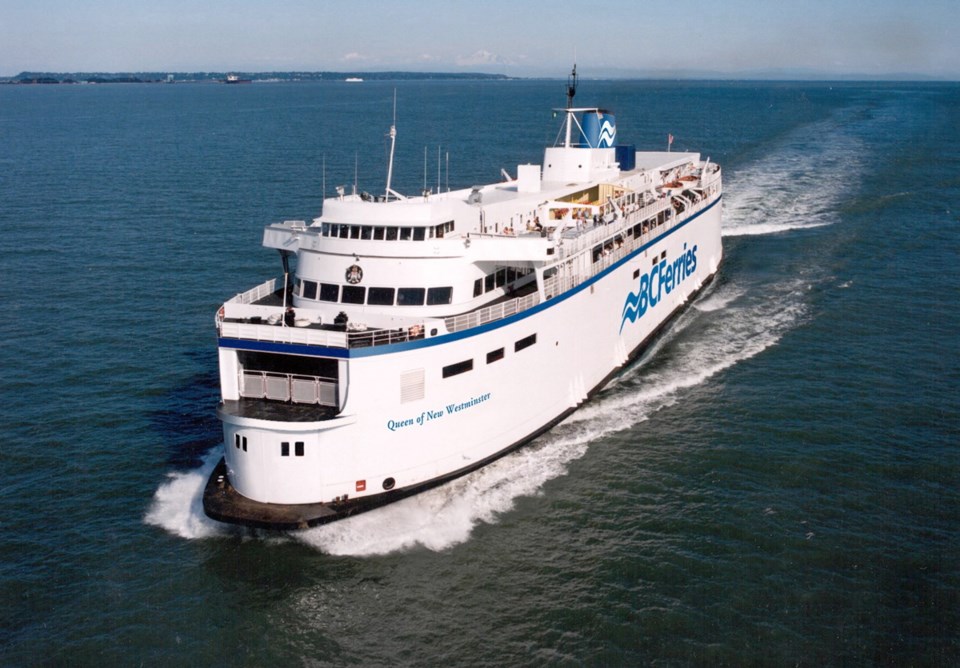B.C. Ferries has awarded pay and bonus hikes for top executives after posting a modest profit this year that critics argue was only possible because of an increased government subsidy.
The quasi-independent ferry corporation revealed Friday that its board of directors boosted salary and perks for its CEO and almost doubled bonuses for two executive vice-presidents in the fiscal year that ended March 31.
Executive vice-president Glen Schwartz saw his “annual incentive” pay increase to $127,008, up $64,298.
Robert Clarke, executive vice-president and chief financial officer, saw his bonus jump to $133,711, up $73,359.
Schwartz and Clarke each earned close to $500,000 overall, which is less than in previous years because B.C. Ferries cancelled a long-term bonus plan that had paid tens of thousands in additional money.
Board chairman Donald Hayes was not available for comment.
But the move was slammed by B.C. Transportation Minister Todd Stone. “At a time when the corporation is trying to reduce its expenses, this sends the wrong message,” he said in a statement.
“We need to ensure that taxpayers and ferry users are getting good value for their dollars. Government is tightening its belt, along with many British Columbians, and I believe that B.C. Ferries should take the same approach.”
Stone said he intends to speak to the ferry board and, in the future, expects it to follow stricter executive- pay guidelines set for government Crown corporations.
The most recent bonuses were awarded, in part, because B.C. Ferries’ “threshold financial target was exceeded,” according to its compensation report. The corporation posted a “modest” $15-million surplus last year.
“This is the first year in three years we reached our financial targets,” said B.C. Ferries spokeswoman Deborah Marshall. “The previous two years, the company did not meet its financial targets so employees were only eligible for 50 per cent of their bonus.”
But B.C. Ferries wasn’t really profitable if you subtract increased taxpayer subsidies, says the Opposition NDP. “If you do the simple math, they lost money,” said NDP house leader John Horgan.
The $15-million surplus is actually a $6-million deficit when you remove the $21.5 million in extra government subsidies that year, he said.
Many people think ferry service has deteriorated, ticket prices are up, and the last thing they want to see is those kinds of bonuses, Horgan said.
Bonus payments for executives were also tied to targets such as safety ratings, customer satisfaction and accounting procedures.
B.C. Ferries has been struggling with declining ridership, increasing ticket prices and looming ferry- replacement costs.
The provincial government spends around $153 million a year subsidizing the service. It has promised another $80 million, spread from 2011 to 2016.
Despite that, the government has said ferry riders will face service cuts on certain routes as part of a review that continues this year.
Ferries CEO Mike Corrigan was paid $563,000 in the last year, once bonuses, pension and other perks are included.
That’s the maximum allowed under the government’s ferry law. There is no cap in the legislation for other B.C. Ferries executives.
The cap on CEO pay came after the retirement of former CEO David Hahn, in 2011, who was paid about $1 million a year.



